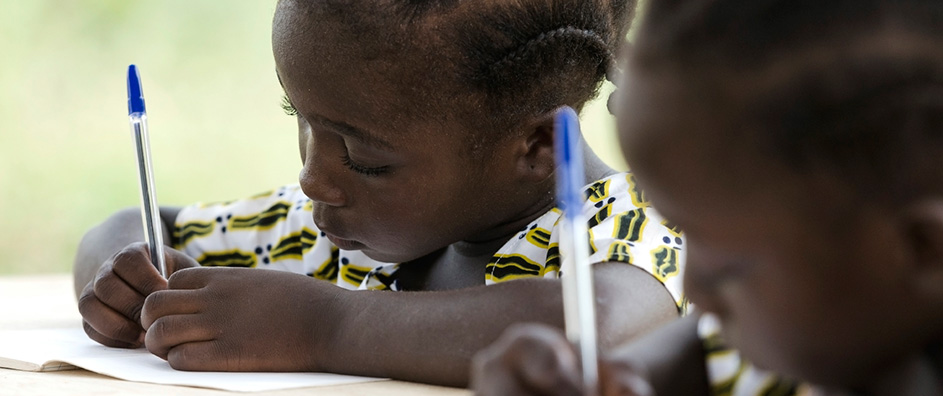In contemporary discourse surrounding educational paradigms, a notable model emerges: The Anisa Project, a Bahá’í-inspired initiative that seeks to redefine traditional educational frameworks. With a careful synthesis of spiritual, ethical, and academic elements, it represents not merely an innovative approach to education but also an illustration of the Bahá’í principles in action. This article endeavors to elucidate the fundamental components of The Anisa Project and explore the underlying motivations that render it compelling within the broader context of educational reform.
At its core, The Anisa Project addresses a notable gap in existing educational methodologies, one that often prioritizes rote memorization and standardized performance over holistic development. In a world increasingly characterized by interconnectivity and complexity, the imperative for an education that nurtures critical thinking, compassion, and ethical reasoning becomes paramount. While many conventional systems focus narrowly on cognitive outcomes, The Anisa Project espouses a more integrative approach. It seeks to cultivate not only the intellect but also the heart, fostering individuals who are not only knowledgeable but also virtuous and socially responsible.
To appreciate the depth and effectiveness of The Anisa Project, it is essential to delve into its foundational principles. Central to the project is the concept of the oneness of humanity, a Bahá’í tenet that posits the intrinsic unity and equality of all people. This principle informs the project’s curriculum, instructional strategies, and community engagement practices, cultivating inclusive environments where diversity is celebrated as a strength. Such an ethos is vital, especially in an era where cultural misunderstandings and societal divisions are prevalent.
The Anisa Project encourages students to explore their identities within a framework of global citizenship. This pedagogical strategy transcends parochial interests and invites learners to engage with the world as responsible citizens who are cognizant of their impact on society and the environment. By promoting discussions around global issues, such as sustainability, poverty alleviation, and social justice, the project equips students with the tools necessary to navigate and contribute positively to complex, globalized contexts.
In addition to its philosophical underpinnings, The Anisa Project operationalizes its vision through diverse methodologies that prioritize experiential learning. This pedagogical approach emphasizes collaboration, dialogue, and critical inquiry. Rather than conventional lectures, students engage in hands-on projects, group discussions, and community service initiatives that reinforce theoretical concepts through practical application. Such strategies not only enhance retention but also engender a sense of agency and ownership over one’s learning, fostering a deeper commitment to personal and communal growth.
One cannot overlook the significance of moral and ethical education within The Anisa Project framework. The cultivation of virtues—qualities such as honesty, compassion, and humility—occupies a central role in the curriculum. In teaching students about ethics, educators not only impart knowledge but also model virtuous behavior, thereby creating an environment conducive to the development of moral character. This emphasis on ethical development resonates profoundly with the overarching Bahá’í ideals of compassion and justice, promoting a vision of education that transcends mere academic achievement.
The interdisciplinary nature of the curriculum is another noteworthy aspect of The Anisa Project. By integrating subjects such as science, arts, mathematics, and social studies, the program reflects the interconnectedness of academic disciplines. Such an approach not only mirrors the complexity of real-world issues but also encourages holistic thinking—students learn to draw connections between disparate fields, fostering innovation and creativity. This is particularly vital in a time where challenges demand multifaceted solutions that can only arise from interdisciplinary collaboration.
Moreover, the Anisa Project places a significant emphasis on educator development. Teachers are regarded as facilitators of learning rather than mere transmitters of knowledge. Professional development programs equip educators with the skills necessary to navigate the emotional and cognitive landscapes of their students, further supporting the project’s mission. This investment in educators yields far-reaching dividends, as empowered teachers can inspire and motivate their students more effectively.
Parent and community involvement constitutes another cornerstone of The Anisa Project’s success. By fostering partnerships with families and local organizations, the project creates a supportive ecosystem that extends beyond the classroom. Such collaboration not only enriches the educational experience but also binds the community, strengthening social fabric and reinforcing shared values. Emphasizing cooperative principles cultivates an environment where education is viewed as a communal endeavor, thereby enhancing accountability and support.
The Anisa Project stands as a testament to the potential of education to transform individuals and societies. By advocating for a model that intertwines academic rigor with spiritual and ethical development, it seeks to address pressing contemporary challenges while planting the seeds for future global citizens. The project’s comprehensive and integrative approach offers not just a method of instruction but a holistic philosophy that challenges traditional educational paradigms. In doing so, it invites educators worldwide to reflect on the true purpose of education: to nurture not only scholars but also stewards of humanity who will contribute meaningfully to a just and peaceful world.
Ultimately, the allure of The Anisa Project lies in its profound vision of education—one that harmoniously blends knowledge with virtue, fostering a new generation capable of rising to meet the complexities of the modern world. By reflecting the core tenets of the Bahá’í Faith and embedding them in the educational process, this model underscores the transformative power of learning as a tool for personal and communal enhancement.
